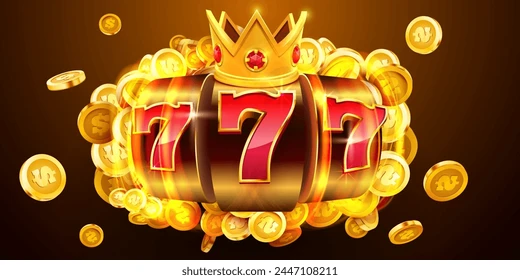As the global Online Gambling and gambling industry continues to expand, the importance of a gaming license becomes increasingly critical for both operators and players. A gaming license is not merely a regulatory requirement; it represents the legitimacy, integrity, and trustworthiness of a gaming operator.
This article provides a comprehensive overview of what a gaming license is, why it matters, the types of licenses available, and how it protects both businesses and consumers in the online gaming ecosystem.
What Is a Gaming License Online Gambling?
A gaming license is an official authorization issued by a governmental or regulatory body that allows an operator to legally offer gambling or gaming services, including casino games, sports betting, lottery, poker, and online slots. It serves as proof that the operator complies with established legal, financial, and ethical standards.
Licenses are typically issued after thorough background checks, compliance audits, and technical evaluations to ensure fair play, anti money laundering (AML) procedures, and responsible gaming policies are in place.
Why Is a Gaming License Important Online Gambling?
A gaming license plays a vital role for several reasons:
1. Legal Compliance
Operating without a valid gaming license is illegal in most jurisdictions. A license ensures that an operator abides by the laws and regulations of the region in which it operates.
2. Player Protection
Licensed gaming platforms are obligated to protect players through responsible gambling tools, secure data protection policies, and fair game mechanics (Random Number Generators).
3. Trust and Credibility
Players are more likely to trust licensed platforms because they are subject to third party regulation and routine audits, increasing transparency.
4. Access to Payment Systems
Most reputable payment providers (banks, e-wallets, crypto gateways) only work with licensed gaming operators. A license helps facilitate secure deposits and withdrawals.
5. Business Opportunities
Having a license opens doors to strategic partnerships, global market access, and advertising on mainstream platforms that prohibit unlicensed gaming operators.
Types of Gaming Licenses Online Gambling
There are different types of gaming licenses, depending on the kind of gaming activity offered. These include:
-
Casino License: For games of chance such as slots, roulette, blackjack, etc.
-
Sports Betting License: For fixed odds and real time sports betting.
-
Lottery License: For number based games such as raffles or bingo.
-
Poker License: For online and peer to peer poker games.
-
Software Provider License: For companies that develop and distribute gaming software.
Some jurisdictions offer all in one licenses, while others require separate licensing for each activity.
Top Gaming License Jurisdictions Online Gambling
Several countries and regions are known for issuing reputable gaming licenses. Each jurisdiction has its own regulatory framework, licensing process, fees, and compliance requirements.
1. Malta Gaming Authority (MGA)
One of the most respected regulators in Europe. MGA licenses are recognized globally and suitable for EU markets.
2. United Kingdom Gambling Commission (UKGC)
Strict licensing body focused on consumer protection, fairness, and responsible gaming. A UKGC license is essential for operators targeting UK players.
3. Curacao eGaming
A popular choice for start ups due to low costs and fast processing. Curacao offers a master license system that covers multiple gaming activities.
4. PAGCOR (Philippine Amusement and Gaming Corporation)
Well regarded in Asia, particularly for operators based in Southeast Asia.
5. Spelinspektionen (Swedish Gambling Authority)
Strict regulations and a strong commitment to responsible gaming for the Scandinavian market.
Requirements to Obtain a Gaming License Online Gambling
Though requirements vary by jurisdiction, common prerequisites include:
-
Company registration in the licensing jurisdiction
-
Background checks on company directors and key staff
-
Financial statements and business plans
-
Technical certification of gaming software
-
Implementation of AML and KYC (Know Your Customer) procedures
-
Ongoing compliance audits
Obtaining a license can take anywhere from a few weeks to several months, depending on the jurisdiction.
Risks of Operating Without a Gaming License Online Gambling
Operating without a valid license can lead to severe consequences:
-
Legal penalties, including fines or imprisonment
-
Website blacklisting and IP blocking
-
Loss of access to payment processing services
-
Reputational damage
-
Seizure of assets and player funds
Unlicensed operators may also be vulnerable to fraud, cyberattacks, and other risks due to lack of regulatory oversight.
How Players Can Verify a Gaming License Online Gambling
Players can take the following steps to verify whether a platform is licensed:
-
Check the website’s footer – Most licensed sites display license numbers and logos of the licensing authority.
-
Visit the regulator’s official site – Authorities like MGA and UKGC offer licensee search functions.
-
Read user reviews and industry reports to assess credibility.
A gaming license is not just a regulatory formality it is a vital component of the online gaming industry that fosters trust, transparency, and legal integrity. For operators, holding a license enhances market access, credibility, and growth opportunities. For players, it offers security, fairness, and peace of mind.
As the industry continues djarumtoto to grow and evolve, both businesses and consumers must understand the importance of licensing and choose to engage only with legally authorized platforms. A well regulated environment benefits everyone in the gaming ecosystem.


Tinggalkan Balasan